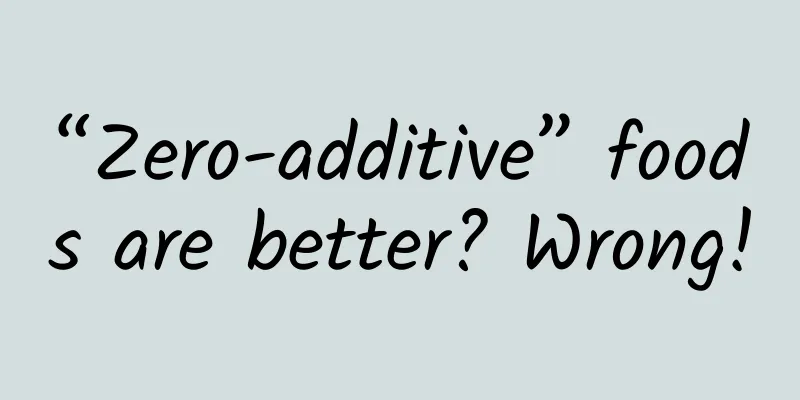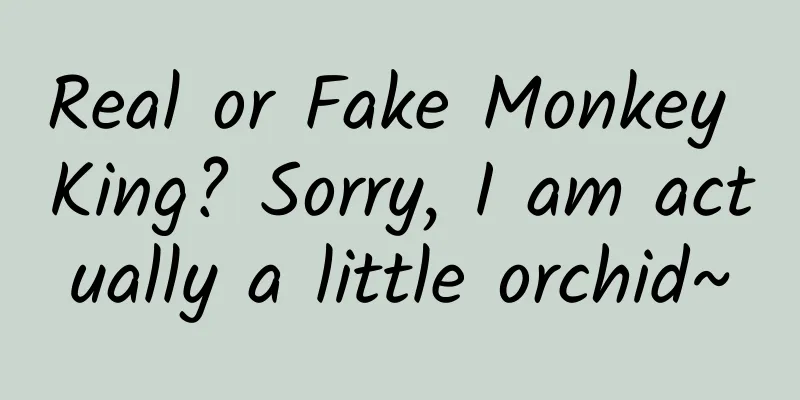“Zero-additive” foods are better? Wrong!

|
Science and Technology Daily reporter Fu Lili Colorful cakes and desserts, rich-flavored drinks... In our lives, these tempting delicacies cannot be achieved without food additives. "It can be said that without food additives, there would be no modern food industry." On November 23, Sun Baoguo, academician of the Chinese Academy of Engineering, chairman of the Chinese Society of Food Science and Technology, and president of Beijing Technology and Business University, said in an interview with Science and Technology Daily. Why add food additives "Food additives refer to artificial or natural substances added to food to improve its quality and color, aroma and taste, as well as for preservation, freshness and processing needs." Sun Baoguo said that common food additives include antioxidants, leavening agents, colorants, preservatives, sweeteners, food flavorings, etc. Why do we add food additives to food? Professor Cao Yanping from the School of Food and Health at Beijing Technology and Business University explained that the main functions of food additives are as follows: First, to maintain or improve the nutritional value of the food itself, adding antioxidants to edible oils can delay or prevent oil oxidation; Second, as a necessary ingredient or component of some special dietary foods, such as foods for diabetics, some energy-free or low-energy high-intensity sweeteners can be added to improve the taste in order to reduce the carbohydrate content of the food; The third is to improve the quality and stability of food and improve the sensory properties of food, such as the emulsifiers and thickeners used in milk-containing beverages; Fourth, it is convenient for the production, processing, packaging, transportation or storage of food. For example, some preservatives have a good anti-mildew effect on pastries. "In short, in the modern food industry, the use of food additives has improved product quality, enriched food variety, and met the diversified food needs of different consumers," said Cao Yanping. Are “zero-additive ” foods better? "Many people think that food additives are bad things and hope for 'zero additives', but they don't know that some food additives are better with additions, and some even want to add more," said Zhong Kai, director of the China Food and Health Information Exchange Center. Specifically, Zhong Kai introduced that this type of food additive is first of all a nutritional enhancer, which includes a variety of vitamins and minerals needed by the human body, as well as other nutrients such as lactoferrin. For some special groups of people, nutritional enhancers are necessary. In addition, iron deficiency is common among pregnant women and growing adolescents, so they can eat some iron-fortified soy sauce. There are also common calcium-fortified foods that can help supplement calcium and are beneficial to tooth and bone health. "Of course, the more nutritional enhancers, the better it is not. Therefore, the national standard has set upper and lower limits for the amount of fortification, which ensures effectiveness while avoiding excessiveness," Zhong Kai emphasized. Secondly, it is a thickener to supplement dietary fiber. Zhong Kai said that as modern people's diets become more refined, whole grains are becoming more popular, and one of the important reasons is the need to supplement dietary fiber. There is a large category of food additives called thickeners, which are generally gums, polysaccharides, sugar alcohols and modified starch substances, many of which are dietary fibers extracted from natural foods. "For example, nowadays we rarely eat rancid-tasting oil. This is mainly because the antioxidant tertiary butylhydroquinone is added to edible oil, which is often said to scavenger free radicals," said Zhong Kai. Zhong Kai said that people don't need to worry too much about food additives. In fact, common kitchen spices such as star anise, cloves, and cinnamon are also food additives. "Whether to use or not, what kind of food additives to use, or how many kinds of food additives to use, as long as they meet the requirements of relevant standards, they will not harm health and there is no difference in safety," Zhong Kai emphasized. Source: Science and Technology Daily |
<<: Is calcium carbonate toothpaste harmful to teeth?
>>: Do elephants drink snot when they drink water?
Recommend
We may have got the tongue's taste map wrong
Eating is human instinct. Especially for foodies ...
After 6 years, the first perfect jailbreak of iOS 14 is released: supports iPhone 12
[[431010]] Since the perfect jailbreak in the iOS...
Good news for diabetics! Can this cow produce milk containing human insulin? This cow is really amazing →
Compiled by: Gong Zixin Diabetes mellitus, caused...
Is abnormal animal behavior a sign of an approaching earthquake?
There is no solid scientific evidence for this cl...
A brief discussion on Li Jiaqi’s private domain traffic strategy!
Li Jiaqi may be one of the hottest names in 2019....
Who understands! It turns out that the whole world is pretending to be "adults"
After the Chinese New Year, in the eyes of your p...
How to optimize an unstable Toutiao account? 7 questions and answers about information flow delivery
There are often various problems encountered in t...
What should we do when entrepreneurial blind spots appear frequently?
Four dead corners of entrepreneurship On the even...
25 great tips for intermediate Git users
I had been using Git for about 18 months and thou...
If I had to choose only one between a cat (dog) and a boyfriend, I would choose...
In recent years, I have been surprised to find th...
Google is investigating phone makers for being too aggressive in killing Android background processes
Over the past few years, Google has made signific...
Is the agency fee for Wuyishan voting mini program high? Wuyishan voting mini program agency fees and process
How much does it cost to be an agent for a voting...
China Charging Alliance: Operation of national electric vehicle charging and swapping infrastructure in 2022
National Electric Vehicle Charging and Replacemen...
New! The Shenzhou-14 crew photographed the beautiful scenery of the motherland in orbit →
Astronauts of the Shenzhou 14 crew Recent works s...
WeChat public account batch unfollowing tool, how to unfollow all public accounts on WeChat?
During the Spring Festival, everyone must have fo...









